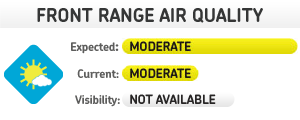ALT Fuels Colorado opened a new grant application period on August 15th. The application period will remain open through September 27th, 2018. For more information on the grant, visit the ALT Fuels program page or contact Kaylyn Bopp, Program Coordinator.
News
Federal CARB waiver rollback and CDPHE LEV
In 2009, and again in 2013, EPA granted a waiver of preemption to California for its “Advanced Clean Car” regulations, which allowed the state to set tighter greenhouse gas (GHG) standards and develop a Low Emission Vehicle (LEV) program and a Zero Emission Vehicles (ZEV) mandate. On August 2, 2018, the National Highway Traffic Safety Administration (NHTSA) and the Environmental Protection Agency (EPA) proposed the “Safer Affordable Fuel-Efficient (SAFE) Vehicles Rule for Model Years 2021-2026 Passenger Cars and Light Trucks” (SAFE Vehicles Rule), which effectively freezes fuel economy standards at 2020 levels and rescinds California’s preemption waiver taking away the option for states to adopt California’s standards.
Under order by Governor Hickenlooper, the Colorado Air Pollution Control Division is continuing to move forward with proposing adoption by the Air Quality Control Commission (AQCC) of California’s LEV program by the end of the year. A request for hearing will be made at the August 16, 2018 AQCC meeting, with a public hearing anticipated to be scheduled for November 15, 2018. Additional information on the upcoming Colorado rulemaking is available on the AQCC website.
City of Aurora releases RFP for Electric Vehicles (EVs) and Electric Bikes
The City of Aurora has released a Request for Proposals (RFP) to facilitate a manufacturer/dealer discount, for the purchase of battery-electric vehicles, plug-in hybrid electric vehicles, and electric bikes. The deadline for submissions is 2:00 PM (MDT),...
ALT Fuels Colorado Grant to open August 15th
ALT Fuels Colorado will open a new grant application period on August 15th. The application period will remain open through September 27th, 2018. For more information on the grant, visit the ALT Fuels program page or contact Kaylyn Bopp, Program...
4th Maximum Ozone Values Table (ppb) through July 22nd, 2018
Click here to view current table The Denver Metro/North Front Range area is designated as nonattainment by the U.S. Environmental Protection Agency (EPA) for the pollutant ozone. The 2015 8-Hour Ozone Standard is 70 parts per billion (ppb) and is...
EPA Concurs with Colorado 2017 Wildfire Exceptional Events for Ozone
On July 11, 2018, EPA notified the State of Colorado of concurrence with a request to exclude ozone data influenced by wildfire exceptional events in September 2017. These events resulting in several monitors exceeding the 2008 ozone standard on September 2 and 4,...
EPA published the Final Rule for Approval & Promulgation for 2008 8-Hour Ozone Standard SIP
EPA published the Final Rule for Approval and Promulgation of State Implementation Plan Revisions; Colorado; Attainment Demonstration for the 2008 8-Hour Ozone Standard for the Denver Metro/North Front Range Nonattainment Area, and Approval of Related Revisions...
Gov. Hickenlooper signs executive order for state to adopt emission standards
Governor Hickenlooper signed an executive order, on Tuesday, June 19, 2018, mandating that the state adopt low emission vehicle standards, incorporating parts of California's low emission vehicle program. The executive order is designed to help the state meet its...
RAQC Releases RFP for Ozone SIP Modeling in the Denver Metro/North Front Range Area
Request for Proposal: Denver Metro/North Front Range Base Year and Future Year Ozone SIP Modeling and Sensitivity Analyses Mandatory Joint Proposers Conference Call: June 19, 2018 – 10:00 am MDT Submittal Deadline: July 19, 2018 – 4:00 pm MDT The Regional Air...
Simple Steps. Better Air. Releases First Mini-Episode of Carpool Confessions
Today, the Simple Steps. Better Air. (SSBA) program released the first in a series of mini-episodes of “Carpool Confessions," featuring radio hosts Kathie J, Jamie White and Ed Greene! You can view the first episode by going to the SSBA posts on both Facebook...

